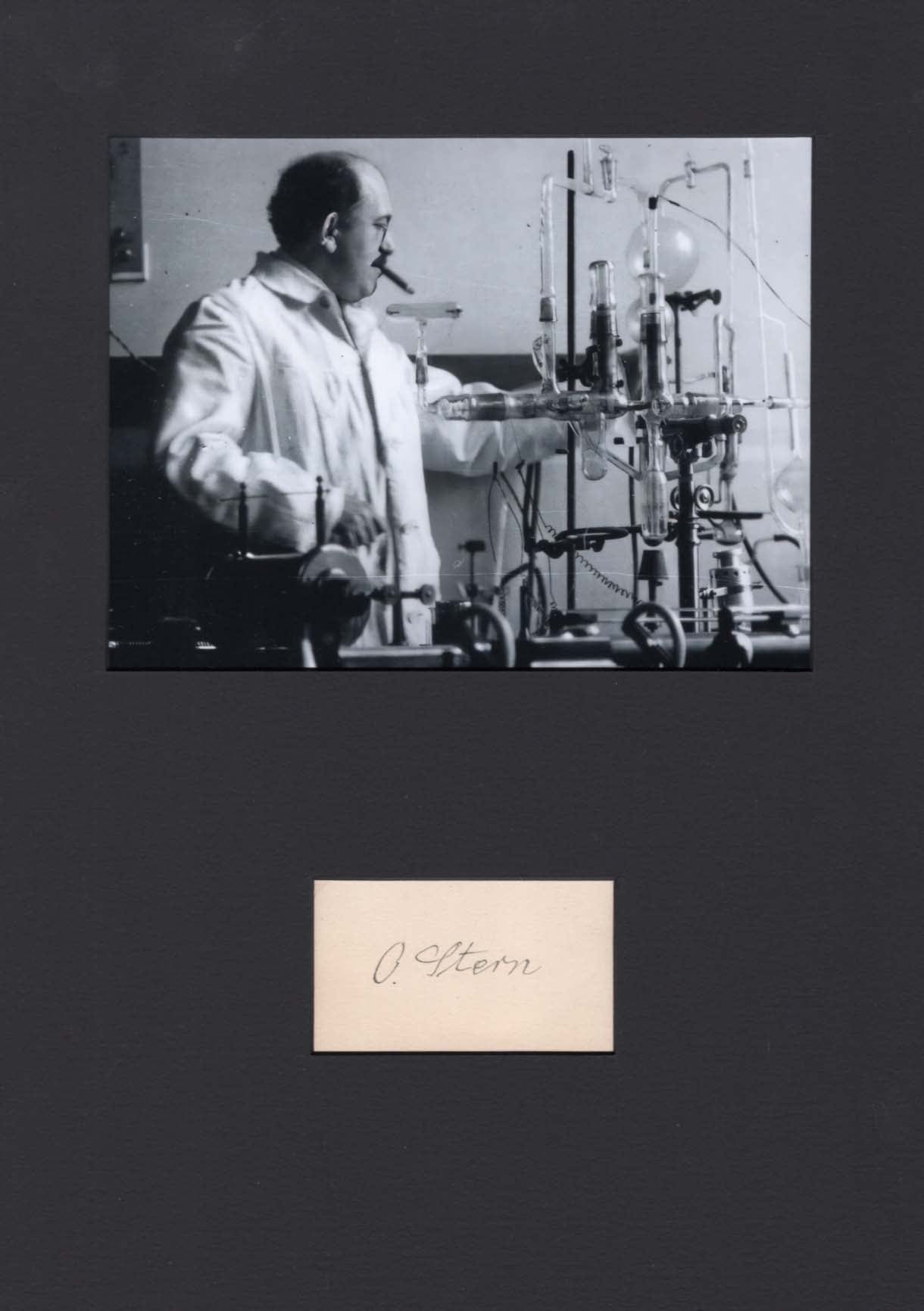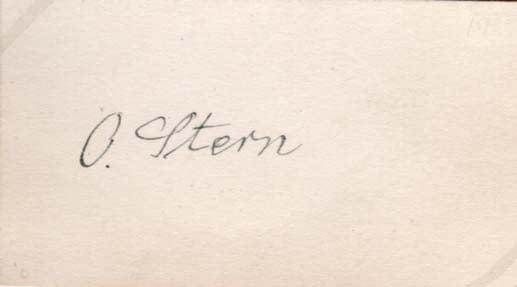Descripción
Más información sobre la persona
Profession:
(1888-1969) German physicist and Nobel laureate in physics - he was the second most nominated person for a Nobel Prize with 82 nominations in the years 1925-1945.
Year of Birth: 1888
Certificado de autenticidad
Todas nuestras piezas se venden con un certificado de autenticidad. Si una pieza resulta estar equivocada o si no le gusta un autógrafo, recuperará su dinero durante toda la vida.
Pago y seguridad
Su información de pago se procesa de forma segura. No almacenamos los detalles de la tarjeta de crédito ni tenemos acceso a la información de su tarjeta de crédito.


